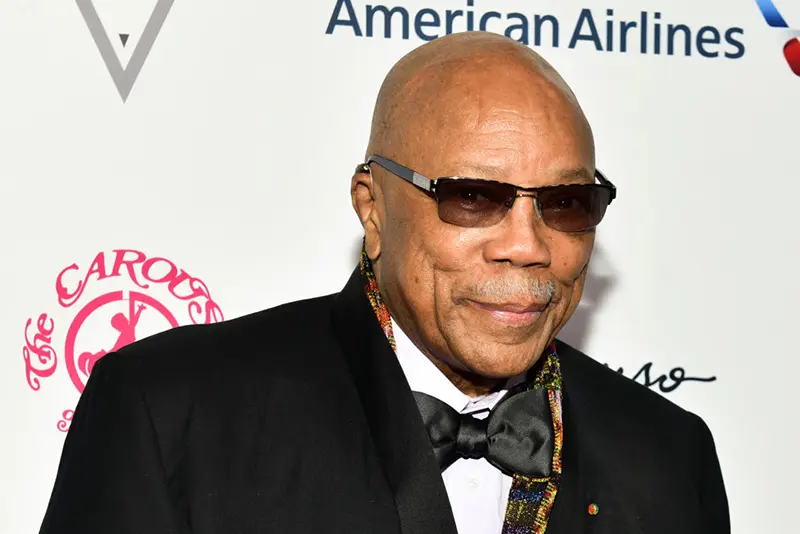November 4, 2024 – 9:43 AM PST

CAUX, Switzerland (Reuters) – A friend of Quincy Jones, the titan of music whose death was announced on Monday, recalled how the all-night jam sessions they used to have during the Montreux Jazz Festival crackled with the electricity between the musicians present.
Advertisement
After the official gigs on the shores of Lake Geneva had ended, musicians would accompany Jones up the mountainside to the chalet of festival founder Charles Nobs and his partner Thierry Amsallem to keep playing.
“For him, it was happiness, because between musicians, they have a common language, they understand each other. They produced a lot of electricity together,” Amsallem recalled from the chalet in the village of Caux, which is decorated with musical memorabilia from some of the festival’s greats, including a trumpet from Jones.
“So with Quincy, something always happens,” said Amsallem. “He was from another planet.”
“It’s very sad, because after 35 years of friendship, a long friendship, it’s always difficult,” said Amsallem. “The last words he said to me were: ‘Thierry, keep going, keep going’.”
A bronze statue of Jones, his arms spread open to conduct an imaginary crowd of musicians, stands in Montreux to honour him and his influence on music.
Amsallem, who is the owner of Montreux Sounds and founder of the Claude Nobs Foundation, said Jones was determined to break out from what he described as a jazz “shoe box” designated for Black musicians.
“One can’t put African-Americans in a shoe box and write jazz on it. So we want to open up all the musical styles,” he said, describing Jones’ attitude.
He credits Jones with the idea of bringing jazz trumpeter Miles Davis to the Montreux festival in 1991 just months before the latter’s death. The result was a performance, with Jones as conductor, which won them a Grammy Award.
Reporting by Cecile Mantovani and Denis Balibouse; Writing by Emma Farge; Editing by Alison Williams
Advertisements below


